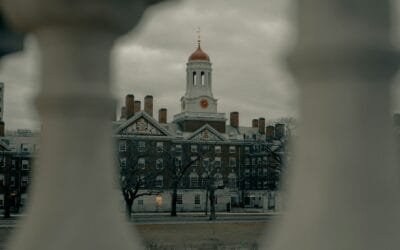It has been said that when Congressional leftwingers cannot push liberal legislation through Congress, they “compromise” by making the proposed legislation more vague. Then, when cases are brought to interpret the vague law, activist judges complete the liberal lawmakers’ work. (See “Up for Grabs” in TAFOL’s Spring 1989 issue for Judge Alex Kozinski’s view on this topic.) Thus, as The Wall Street Journal pointed out in a recent op-ed piece, a new “Clean Air” bill refers to “clean air” and “clean water” without clearly defining those terms. Congress will count on environmentalists to bring cases in the courts to determine what “clean” means.
This process has been helped along by the lowering of judicial standards with respect to the question of “standing,” i.e., who may sue in court on a particular issue. Article III of the United States Constitution grants jurisdiction to the federal courts only over “Cases” and “Controversies.” As The Wall Street Journal states: “Until recently, everyone understood this to mean that only people with direct and particular harm can sue.” A person cannot maintain a suit simply because he is interested in knowing an answer to some question where there has been no injury, and no injury is threatened to him. The courts are not forums for philosophical discussion or the advancement of social programs. They are forums for the redress or prevention of specific violations of rights. In this way, the courts make as little law as possible, by making law only when necessary, i.e., only when there is an actual dispute involving a violation of rights.
The op-ed article cites a recent example of undermined standing principles. In Lujan v. National Wildlife Federation, an environmental group sued the Interior Department to block deregulation and development of federal land comprising more than seven percent of the country’s land mass. The group charged technical deficiencies in environmental impact statements. In order to establish standing to sue, the environmental group relied on the complaint of its member Peggy Peterson, who asserted that part of the plan threatened her “recreational use and aesthetic enjoyment of federal lands” in the vicinity of “a two million-acre parcel in Wyoming where 4,455 acres would be opened to mining.” (Of course, the issue was confused further here by the fact that the lands are owned by the government, but the question of standing arises in litigation involving private property as well.) The Federal Court of Appeals allowed the case to proceed, and for years, the deregulation of the land was enjoined. (During argument before the Supreme Court, Justice Scalia questioned the attorney for the environmental group as to whether they could sue if they only complained about “allowing mining in the United States.”)
But, as the article reminds us, liberals have gone much further in concocting ways to get into court. Back in 1972, a classic law review article—“Should Trees Have Standing? Toward Legal Rights for Natural Objects”—proposed “the wilderness itself as the plaintiff.” Although such suggestions have, to some extent, been taken seriously and had negative effects on the law, they do have their light side. A Michigan court once affirmed a decision rejecting a suit for damage to a tree with the following as the entire opinion:
We thought that we would never see
A suit to compensate a tree.
A suit whose claim in tort is prest
Upon a mangled tree’s behest;
A tree whose battered trunk was prest
Against a Chevy’s crumpled crest,
A tree that faces each new day
With bark and limb in disarray;
A tree that may forever bear
A lasting need for tender care.
Flora lovers though we three
We must uphold the court’s decree.
Copyright © The Association for Objective Law. All rights reserved. Republished in Capitalism Magazine by permission of TAFOL.










